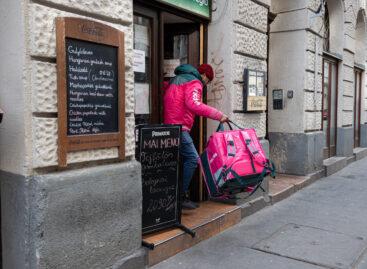Franchising works well in Hungary
According to data from the Hungarian Franchise Association, 18,000 enterprises are members of the 340 franchise networks in Hungary – we are ahead of the neighbouring countries. A well-organised franchise is capable of surviving the crisis. Yetti Oláh, Norbi Update’s press manager told our magazine that despite a decline in consumption they managed to keep their customers. For this they had to establish a system with collective marketing end exclusive distribution rights. Wessling examinations and clinical tests guarantee the quality of Update products. 70 percent of products are bought exclusively by franchise stores. Yetti Oláh added that choosing the right location was a key element in stores’ profitability. At the moment, there are 50 Update stores in Hungary and the number of applicants is also around 50. In general we can say that in Hungary franchising adapts well to the character of Hungarian entrepreneurs. However, 2010 does not seem to be the best year for franchise networks. Declining retail sales had a negative effect on franchising activity and big franchise networks tried to bring in new members by dropping entry fees.
Despite all the hardships the Coop Group managed to increase its sales revenues by 2 percent last year. The chain has 3,000 stores all around the country and they integrated another 2,000 which do not bear the Coop logo. This year they plan to refurbish 200-250 stores by investing HUF 100 million. With a HUF 1.5 billion development more than 700 stores will be part of Coop’s integrated IT system by the end of the year. Fornetti was present in 13 countries through its franchise partners by the end of 2009, from Poland to Albania. According to trade magazine Franchise Europe, it has become the third biggest network in Europe after McDonald’s and Italian real estate agency Tecnocasa. The Kecskemét enterprise has become market leader in Romania with more than 500 units in 130 towns. It is now one of the biggest Hungarian investors on the Romanian market. Last year the company modernised its production facilities. Members of the system are satisfied because entering the Fornetti franchise does not cost much and entry fees are invested in the system by Fornetti.
Economic recession and the stumbling domestic economy put great burden on those working in the franchise system, especially on the real estate market. But let us not forget that franchise partners are still better protected than individual enterprises. What is more, experience is that franchising is a business model that can profit from the present economic and social situation: those who are made redundant but have savings can become franchise members and learn enterprising with a safe network as supporting background.
Related news
Related news
The latest issue of Trade magazine is out now!
This time the digital version has been extended to 192…
Read more >After a subdued year, the holiday season is strong
74% of online shoppers, around 3.1 million people, are preparing…
Read more >Battle of the regions: these are the most popular dishes according to Hungarians
Five times the national average of Mexican food is consumed…
Read more >





